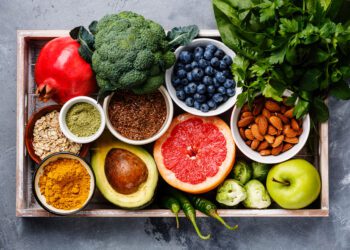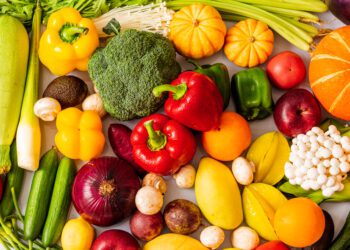The Russian invasion of Ukraine has shocked the world, leading to terrible suffering, and harsh impacts are already being felt beyond the conflict zone. The war has the potential to spark a global food security crisis, driven by two factors: Skyrocketing costs of food for consumers and of fertilizers for producers. This crisis demands an immediate global response to provide relief in the short term, as well as policy changes to diversify the world’s food markets over the long term to build resilience and avoid future crises.
Commodity prices were rising steadily before the invasion, according to the FAO Food Price Index, which hit an all-time high in February, before the full impacts of the invasion could be felt. Prices of cereals and vegetable oils are reaching levels higher than the 2008/9 global food price crisis.
The invasion has created two principal problems that will likely drive food prices higher. It is disrupting production and trade in Russian and Ukrainian cereals and vegetable oils, which command a significant share of the global market—about 30% of world wheat and barley exports, for example. It has also interrupted fertilizer exports from Russia and Belarus, which together account for a major share of global production.
If Russia were to ban exports of its important food crops in retaliation for sanctions, and prices spike, a domino effect could follow with countries imposing their own export bans and restrictions. This has been a common reaction to high grain prices; it happened during the 2008/9 food price crisis and was considered briefly by Russia and others early in the COVID-19 pandemic. This would push food prices even higher and create even more scarcity. The combination of high prices and scarce food and fertilizer would hit many lower-income countries hard, particularly in the Middle East and Africa, and potentially push millions more people into hunger and poverty.
This is a dire situation. But responding to it can be seen as an opportunity—to fix the problems that helped create it and to build long-term global resilience.
The Russian invasion of Ukraine comes on top of years of other crises that remain unresolved: The COVID-19 pandemic, climate change, biodiversity loss, and rising global hunger.
Part of the solution to the environmental crises we are facing is the inefficient use of chemical fertilizers, which results in runoff, depleted soils, and increased greenhouse gas emissions. Like food prices, chemical fertilizers prices were already rising before the war, an increasing drain on the budgets of governments providing fertilizer subsidies. Now the invasion is likely to drive them up still further. This could provide a greater incentive to improve efficiency in the application of fertilizers.
More importantly, shocks and crises have become the new norm, which calls for a fundamental rethink in how food is produced, traded and consumed. The increased frequency and severity of shocks, whether as a result of extreme weather events, pandemics, or conflict, means the world needs to diversify where and how food, fertilizer and energy needs are sourced. The concentration of production and trade in too few places, and by too few companies, is a real threat to global food security.
This does not mean countries should turn inward and seek to become self-sufficient in food production. That would be disastrous and make them even more vulnerable to local or national shocks. Take the Southern African drought of 2015-2016, which wiped out 30% of the region’s grain production and left 41 million people food-insecure. If drought-stricken countries had not been able to import food, the situation would have been much worse. We need more choice, not less. Markets should be diversified at all levels—global, regional, national and local—in order to build resilience and provide more choices for where affected populations can meet their needs when the next shock arrives.
Achieving such changes will require both short- and long-term action. In the short term, countries should address high prices by avoiding export bans of food staples, diverting food currently destined for biofuel production back to the food supply, and providing social safety nets to consumers and producers.
In the long term, three things are needed.
First, address the use of chemical fertilizers. Countries, international organizations, and private sector stakeholders should focus on improving the efficiency of the application of chemical fertilizers, and on increasing public and private investment in innovation to promote more targeted plant nutrition and alternatives to chemical fertilizers. One important source of public investment could be redirecting government subsidies for chemical fertilizers—one of the most environmentally harmful forms of support given to farmers. Repurposing this support would not only reduce reliance on this commodity, it would be a huge win for human health and the environment.
Second, strengthen global trade rules to stop countries from banning or restricting exports of food staples, unless they face their own food security crisis. This would require updating the WTO rulebook on agriculture, but also improving the transparency of agricultural markets and rebuilding trust between countries through the Agricultural Market Information System (AMIS). These steps could help reassure countries concerned about food security so they do not panic and impose trade restrictions that harm other countries. The upcoming WTO Ministerial Conference in Geneva in June 2022 is an opportunity to advance these issues.
Third, increase the resilience of the global food system by reducing dependency on a few countries and a few companies for the bulk of agriculture and food needs. This means diversifying, strengthening and improving the way agriculture and food markets function; making them less concentrated, and disciplining excessive market power.
Russia’s war in Ukraine could lead to one of the worst food crises in decades. Every effort should be undertaken to avert and minimize the resulting human suffering happening now. But the broader message is clear: To safeguard itself from future crises, the world must also make the necessary longer-term investments in agriculture and food systems to ensure they are able to provide nutritious food for all people in a sustainable way.
(Courtesy International Food Policy Research Institute/by Carin Smaller)












